News & Events

"Spiritual Noise" is how My Cat Is An Alien baptized their own music and intermedia work at the beginning of their third decade of activity.
Volume 2 in the ongoing "Spiritual Noise" series is a further step ahead in the unheard new music territories of MCIAA.
Released on the new Antigravitational imprint, the record label & multimedia platform created and curated by MCIAA and set up with gallerist and publisher Marco Contini, the album was designed following principles of seriality and of installation art: the vinyl LP takes the shape of a multimedia object which displays a proper artbook mounted on the cover jacket, giving access to cinematic poetry films and extra contents for a fully immersive experience.
More information can be found here.

Carla dal Forno announces her second full-length album, Look Up Sharp, on her own Kallista Records.
The London-based artist enters a new era in her peerless output pushing her dub-damaged DIY dispatches to the limits of flawless dream-pop. In a transformative move towards crystal clear vocals and sharpened production, Look Up Sharp is an evolutionary leap from the thick fog and pastoral stillness of her Blackest Ever Black missives, You Know What It’s Like (2016) and The Garden EP (2017).
Three years since her plain-speaking debut album, the Melbourne-via-Berlin artist finds herself absorbed in London’s sprawling mess. The small-town dreams and inertia that preoccupied dal Forno's first album have dissolved into the chaotic city, its shifting identities, far-flung surroundings and blank faces. Look Up Sharp is the story of this life in flux, longing for intimacy, falling short and embracing the unfamiliar. Dal Forno connects with kindred spirits and finds refuge in darkened alleys, secret gardens and wherever else she dares to look.
In her own territory between plaintive pop, folk and post-punk, dal Forno conjures the ghosts of AC Marias, Virginia Astley and Broadcast through her brushwork of art-damaged fx and spectral atmospheres. The first half of the record is filled with dubbed-out humid bass lines, which tether stoned hazes of psychedelic synth work as on "Took A Long Time" and "No Trace." These are contrasted with songs like "I'm Conscious" and "So Much Better" that channel the lilting power of Young Marble Giants and are clear sequels-in-waiting to dead-eyed classics like "Fast Moving Cars."
The B-side begins with the feverish bass and meandering melody of "Don't Follow Me," which takes The Cure's "A Forest" as its conceptual springboard. It's the clearest lyrical example since "The Garden" of dal Forno's unmatched ability to unpick the masculine void of post-punk and new wave nostalgia to reflect contemporary nuance. Look Up Sharp reaches its satisfying conclusion with "Push On" - dal Forno’s most explicit foray into an undiscovered trip hop universe between Massive Attack and Tracey Thorn. The album's last gasp finds personal validation in fragility: "I push on / I'm the Place I'm Going," a self discovery lifted by reverberant broken beats and glass-blown vocals.
Adding further depth to Look Up Sharp are the instrumentals, which flow seamlessly between the vocal-led pieces. "Hype Sleep" and "Heart of Hearts" drink from the same stream as The Flying Lizard's dubbed-out madness and the vivid purple sunsets of Eno's Another Green World. While "Creep Out of Bed" and "Leaving for Japan" funnel the fourth-world psychedelia of Cyclobe's industrial-folk into the vortex of Nico's The Marble Index.
Conceived as a whole, Look Up Sharp is a singular prism in which light, sound and concept bend at all angles. A deeply personal but infinitely relatable album its many surfaces are complex but authentic, enduring but imperfect, hard-edged but delicate. A diamond. Look up sharp or you’ll miss it.
More information can be found here.
Fad Gadget
The Best Of released on Silver Vinyl
RELEASED 6 SEP
CELEBRATING 40 YEARS SINCE
THE DEBUT FAD GADGET 7” RELEASE
AVAILABLE FOR THE FIRST TIME ON VINYL
“Under the moniker Fad Gadget, Frank Tovey pioneered a genre of electronic music which is now part of the mainstream.” – The Independent
“Never before or since has an artist captured the awkwardness, the strange humour, the revulsion and prurient joy of (especially British) sexuality and human physicality quite as effectively as Tovey” – The Quietus
“Proto-techno “pop” perversions” – Pitchfork
“Enchanting synth-pop brilliance” – Dangerous Minds
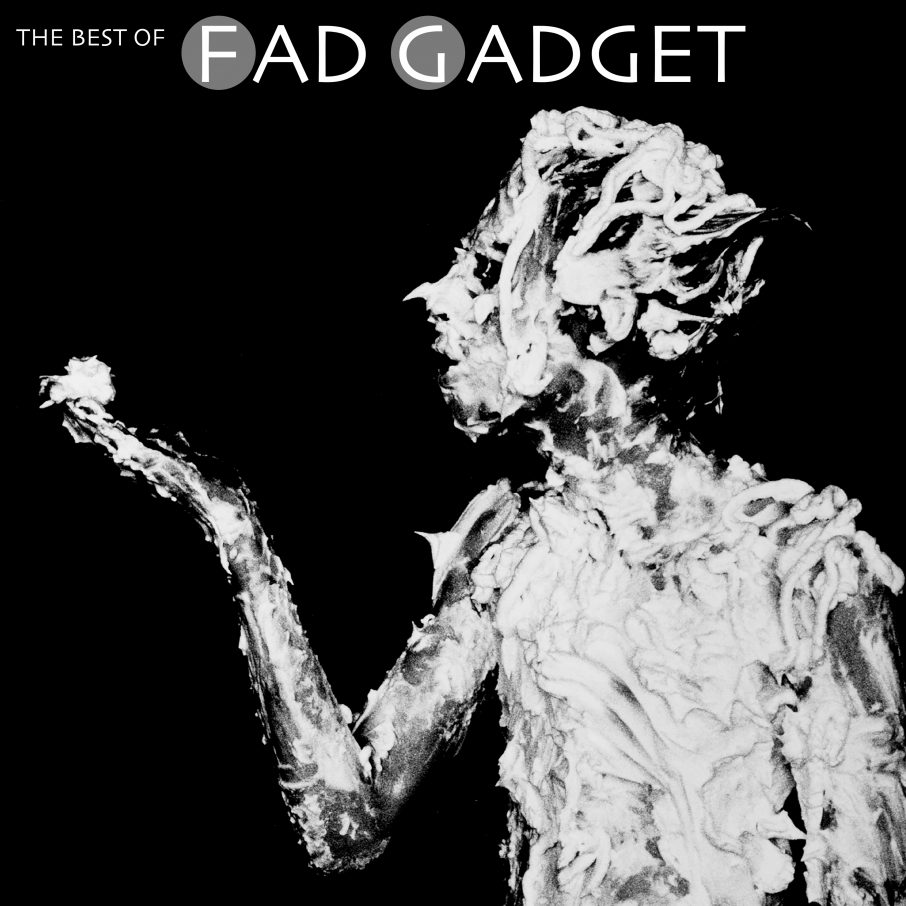
Mute have announced a double silver-vinyl release of The Best of Fad Gadget, out on 6 September 2019. Available here for the first time on vinyl, part of the ongoing MUTE 4.0 (1978 > TOMORROW) campaign, the release marks the 40th anniversary of Fad Gadget’s debut 7”, the double A-side single, ‘Back to Nature’ / ‘The Box’.The original 2001 CD was the last release before the untimely early death of Frank Tovey aka Fad Gadget in 2002. The track listing, his personal selection, was designed to be both a concise retrospective of the Fad Gadget years and an introduction to his work for a new generation as he embarked on Depeche Mode’s Exciter tour as their special guest.
Fad Gadget was Mute’s first signing and the groundbreaking debut 7”, ‘Back To Nature’ / ‘The Box’ (Oct 1979), recorded using a drum machine and a synthesiser, was the second release on the label. Alongside Cabaret Voltaire, The Human League, Throbbing Gristle, Soft Cell and The Normal, Frank Tovey was at the forefront of the British electronic movement of the late 70s/early 80s and his live performances, drawing on his art school background and interest in performance art, were intense, spectacular and innovative.The Best of Fad Gadget features the classic singles ‘Ricky’s Hand’, ‘Fireside Favourite’, ‘Collapsing New People’ and ‘For Whom The Bells Toll’ (featuring Alison Moyet), b- sides and tracks from his celebrated albums, Fireside Favourites (1980), Incontinent (1981), Under The Flag (1982), and Gag (1984) as well as ‘Luxury’, taken from 1986’s Frank Tovey release, Snakes & Ladders.
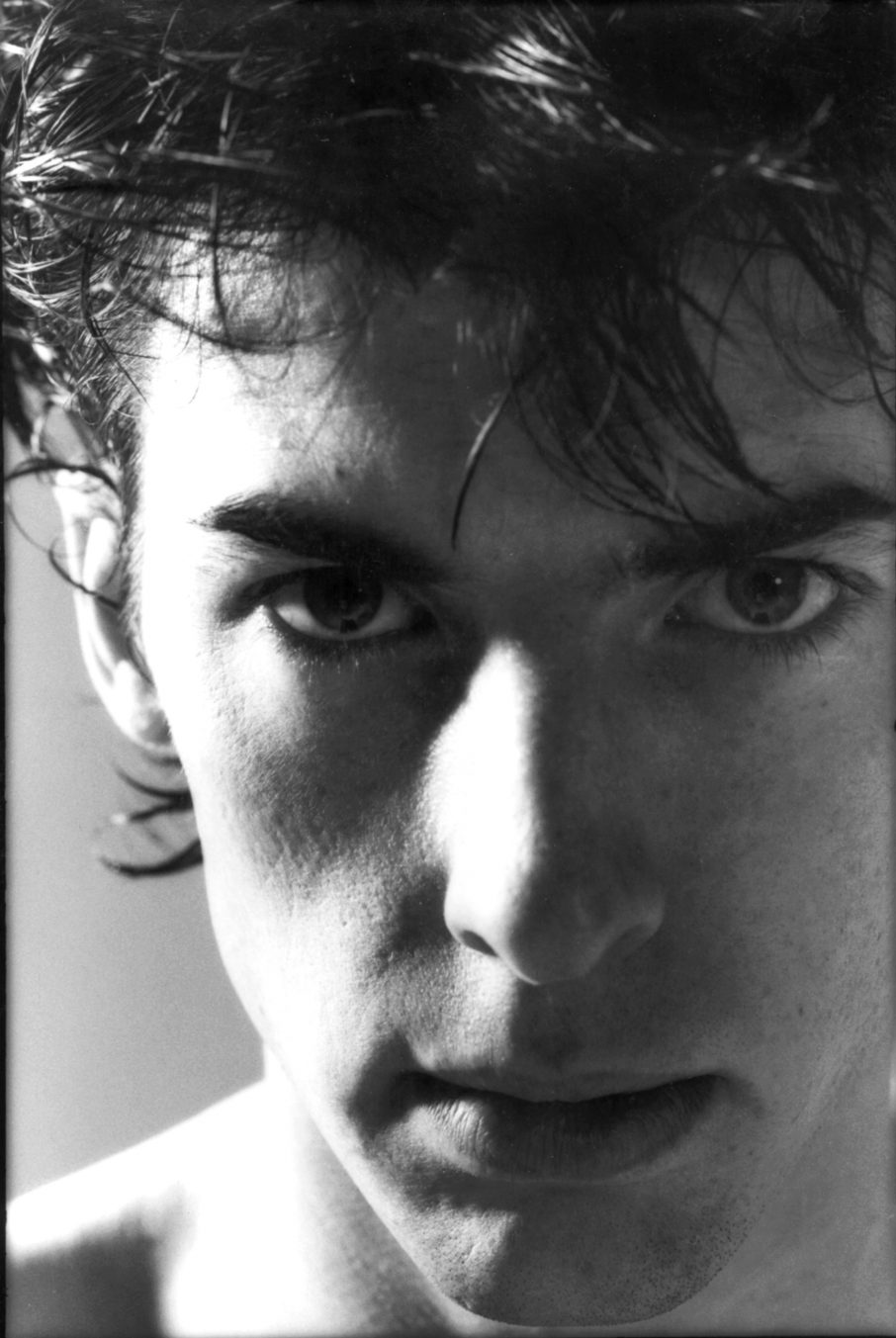
This release is the first stage of Mute’s celebration of Frank Tovey’s work, to be followed by a career-spanning box set in early 2020 marking the 40th anniversary of his first album Fireside Favourites.
The Best of Fad Gadget tracklisting
Side A
1. Back To Nature
2. The Box
3. Ricky’s Hand
4. Handshake
Side B
5. Fireside Favourite
6. Insecticide
7. Make Room
8. Lady Shave
Side C
9. Saturday Night Special
10. King Of The Flies
11. Life On The Line
12. 4M
13. For Whom The Bells Toll
Side D
14. Love Parasite
15. I Discover Love
16. Collapsing New People
17. One Man’s Meat
18. Luxury
https://www.instagram.com/fadgadgetofficial/

In his solo work and as a member of Nine Inch Nails, Alessandro Cortini's music casts the listener into an intricately rendered vortex of emotive dynamics, where he expertly maximizes the boundaries of contemporary electronic music. His new album, Volume Massimo, combines his fondness for melody with the rigour of experimental practice. Follows on from 2017's universally acclaimed album Avanti. 8 tracks of deftly arranged synthesizers saturated with sonic artefacts and luscious pop sensibilities.
More information can be found here.

THE THIRD & FINAL CARTER TUTTI VOID STUDIO ALBUM - OUT ON 30th AUGUST 2019
Containing all new studio recordings, Triumvirate brings Chris Carter, Cosey Fanni Tutti and Nik Void's collaborative partnership as Carter Tutti Void to a conclusion. The trio first came together as a collective for a live performance, invited by Mute for the Short Circuit Festival in 2011 and released their acclaimed debut, the live album Transverse the following year.
Carter Tutti Void went on to release f(x) (Industrial Records, 2015), their first studio recording and performed a handful of selected shows, culminating in their final live performance in Hull, part of a series of events for Hull City of Culture 2017 centred around the COUM Transmissions retrospective at Humber Street Gallery.
For some time Carter, Tutti and Void have been awaiting an opportunity when all three artists were able to gather at Carter and Tutti's Studio47 in Norfolk, where the album was recorded, produced and mastered. Triumvirate was approached with the improvisational spirit of previous Carter Tutti Void albums. The rhythms, created by Chris Carter, formed the foundation and starting point from which the process began of melding the live instrumentation of Cosey Fanni Tutti and Nik Void's searing guitars, vocals, effects and the arsenal of sounds each had amassed from a variety of sources, some sounds manipulated to extremes, all fed into the mix. Tying the album together is the power of three, and a free open approach to sound shared by the trio.
More information can be found here.
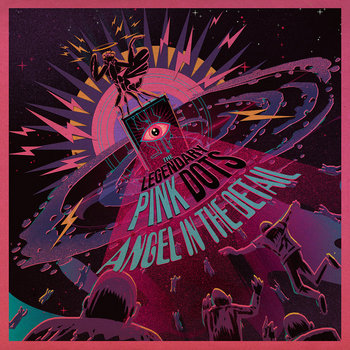
Two years in the making, Angel in the Detail is an enthralling & captivating release where distinctive vocals & lyrical imagery float over textural ambience, hypnotic guitar, synth washes & spellbinding bass pulses.
Out August 23rd on Metropolis. More information can be found here.
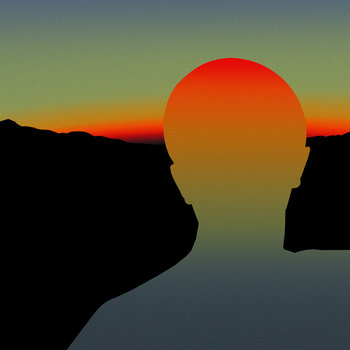
Umberto is an artist whose work is distinctly cinematic. Composer Matt Hill's performances and delicate compositions taken together have the cumulative ability to surprise. Hill, whose Umberto moniker is an homage to director Umberto Lenzi, is an experienced and active film composer, most recently scoring the film All That We Destroy. In addition to film and commercial work, Umberto has released a number of lauded solo recordings. Hill's compositions stand apart as beautiful as they are impenetrable, with pulsing synths that hint at 80s slasher films while pensive string passages evoke emotions without being sentimental. On Umberto's Thrill Jockey debut Helpless Spectator, his haunting music is otherworldly and affecting alike, leaving the listener with an unsettling and profound air of mystery.
Umberto's early recordings harken back to classic synth-driven sci-fi and horror soundtracks. Helpless Spectator uses synthesizers in an entirely different manner. Cold, looming monolith tones are now warm, softer pads that envelope the listener while guitar, cello, banjo and pedal steel add movement and light. Still, Hill unsettles with his arrangements and melodic phrasing. As a composer, Hill has moved to more extensive use of live instrumentation. In addition to playing guitar, bass, and piano himself, Hill worked with fellow composer and recording artist Aaron Martin who played cello and bowed banjo on the majority of the album. "Idaho Joe" Winslow’s pedal steel guitar adds depth and subtle countermelodies to "The Higher Room" and "Leafless Tree."
The name Helpless Spectator is taken from the Julian Jaynes book The Origin of Consciousness in the Breakdown of the Bicameral Mind. Hill was taken with the concept Jaynes set out to disprove that "Consciousness can no more modify the working mechanism of the body or its behavior than can the whistle of a train modify its machinery or where it goes." The darkness and obliviousness inherent in this concept, the notion that while we perceive control, we are not in control, serves as a great metaphor for the contrasts of Umberto's music. Warm tones and nuanced arrangements with cello and pedal steel are not typically the instruments of dread, yet Hill achieves a creeping undertone of dread with his deceptively complex pieces. Musical figures both melodically and rhythmically simple intertwine, build, and collapse upon one another. The dissonant tensions that steadily grow rarely completely resolve; rather they dissipate into a new set of questions. Unexpected shifts and turns in even the most tender movements of Helpless Spectator are inflected with a contemplative melancholy and fragility.
Umberto makes masterful use of varied textures throughout the album, blending supernatural effects and grounded instruments to create distinct atmospheres. Helpless Spectator is inquisitive and moving in equal measure, an album of somber elegance and delicate arrangements whose cumulative effect of unease is entirely unexpected.
More information can be found here.
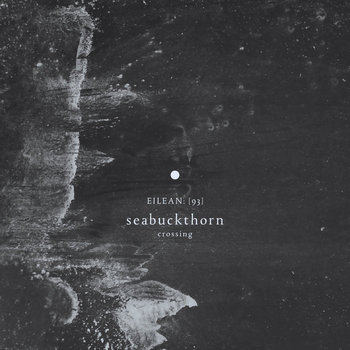
Seabuckthorn is the solo work of Andy Cartwright since 2009.
Exploring various approaches on guitars, with fingerpicking, bowing and slides, often with layered accompaniments.
Crossing, his 8th solo album, is focusing on ambient spaces created by bowed resonator guitar. It was recorded in his home studio in the French Alps with the expectancy of becoming a father.
More information can be found here.
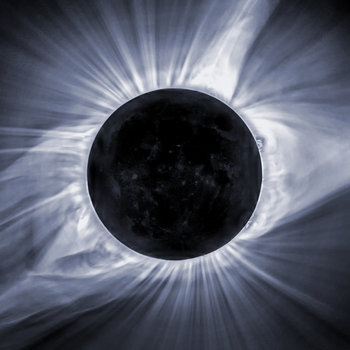
It is with tremendous pleasure that we announce Resonant Field, the brand new full-length album from New York-based sound artist and composer Lea Bertucci. Following up her critically acclaimed 2018 NNA full-length Metal Aether, Lea continues her devotion to the exploration of physical spaces by way of sound, channeled through her alto saxophone. Where her previous work investigated a variety of locations around the globe, Resonant Field narrows her focus to one space in particular - the Marine A Grain Elevator at Silo City in Buffalo, New York. Using her horn, Lea awakens certain resonances within the space which have laid dormant and forgotten for decades. In this sense, Resonant Field is the documentation of a human's profoundly personal interaction with an inanimate space through the medium of sound.
The decommissioned structure at Silo City is a massive, cavernous space filled with large cast concrete cylinders, measuring approximately 18 feet wide and 130 feet tall. A grain silo that was once active, noisy, loud, and filled with kinetic energy now lays dormant as a silent, hulking concrete corpse, as is the case with many industrial sites across the United States. Through playing her saxophone inside this structure, Bertucci's goal was to excite and activate the space by playing certain pitches and extended techniques. By engaging with the acoustics in this manner, particularly the 12 seconds of natural decay, Bertucci is able to reimagine the saxophone as a polyphonic instrument, creating unique effects of microtonality and complex rhythmic phenomena, facilitated by the distinct delay as the sound bounces from one end of the silo to the other. Her microtonal playing moves delicately through the octaves, creating an interactive, responsive dance up and down the frequency scale. These overlapping tones form an extreme density and fills the ears and head with an eternal buzz, while also revealing an array of fluttering psychoacoustic phenomenon to the listener. By using these raw recordings of saxophone as the foundation for more intricate studio compositions, Resonant Field transcends mere documentation and evolves into a focused, comprehensive and total work at the hands of the artist.
Due to the specific architectural and sonic conditions of the Marine A Grain Elevator, Lea has captured new, never-before-heard sounds that truly cannot be duplicated by any other means. Her playing is improvisatory and reactive to the space’s unique acoustics. By allowing imperfections to exist within the recordings, the compositions evoke a distinct rawness and vulnerability. Free of premeditation or calculation, there is an emotional surrender to the bestial, monumental atmosphere and presence of Silo City. This formation of an intimate connection with her surroundings is both scientific and spiritual, putting Lea in a duality of roles as both an archaeologist of sound and as a sonic medium. The fact that these recordings took place during the partial solar eclipse of 2017 further contributes to the ceremonial, ritual quality of the work, making Resonant Field a profound, industrial meditation on beauty, emptiness, and the deep melancholy of forgotten spaces.
More information can be found here.
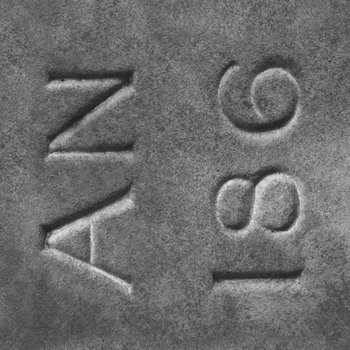
Richard Skelton has spent the last two years living on the rural northern edge of the Scotland-England border, a boundary demarcated by various watercourses - among them the Kershope Burn, the Liddel Water and the River Esk. This hinterland topography has informed a series of musical recordings which, in their brevity, stand in stark contrast to the longform compositions for which he is more usually known. Nevertheless, there is a sense that these twelve miniatures are fragments of a larger whole, such is their unity in tone and timbre.
In some ways, Border Ballads can be seen as a revisiting of certain compositional processes first encountered on Marking Time, over a decade ago. The sparse, overlapping bowed notes, for example, or the solitary, bell-like piano. But there is something different at work here. Whereas Marking Time felt aeolian, shifting, fleeting, this new work, with its persistent cello undertow and its low, tremulous viola, feels telluric, grounded, earthen. Perhaps Border Ballads can be seen as the embodiment of a desire for certainty after a prolonged period of upheaval, but that ever-close riverine border, at once both fixed and fluid, is a disturbing presence. A darkness that cannot be ignored.
More information can be found here.

